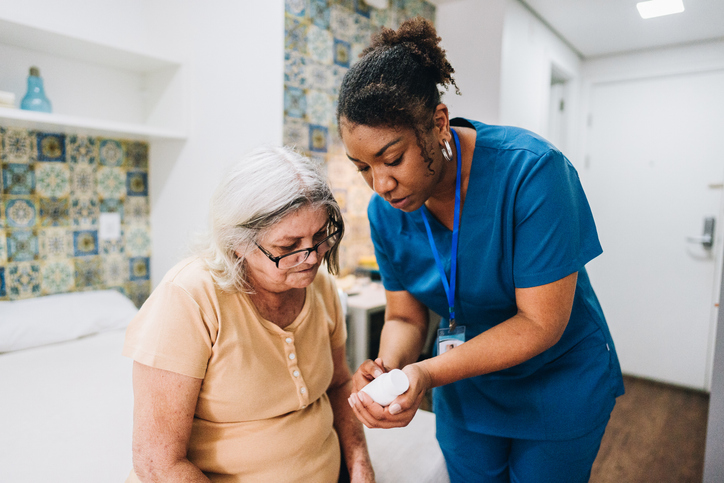GU Cancer
Advertisement
The investigators conducted semistructured phone interviews to recruit patients with bladder, prostate, or kidney cancer.
Garg explained the importance of investigating disparities across racial and ethnic groups in the Hispanic community.
The open-label phase 2 clinical trial enrolled 33 patients with resectable, high-risk ccRCC.
Optimal management of non-clear cell renal cell carcinoma remains an unmet need.
While RCC is the leading cause of cancer-related mortality, early detection can greatly improve disease outcomes.
Researchers investigated if a frailty index could assess for associations between toxicity, clinical outcomes, and frailty.
Research is currently limited on how GLP-1 receptor agonists affect ICI efficacy in patients with cancer.
The phase 3 study is the longest follow-up—9 years—of a first-line checkpoint inhibitor combination in advanced RCC.
Researchers predicted that sMAdCAM-1 could be used as a prognostic biomarker in ICI-based therapy for patients with mRCC.
Patients with ccRCC were randomly selected to receive pembrolizumab or placebo and categorized by risk for metastasis.
Oncology social workers performed resource-intensive screening to assess distress in patients with gynecologic cancers.
Demographics, regional trends, and disparities in endometrial cancer-related mortality for women in the US were investigated.
The study evaluated whether geographic barriers to care or psychological distress may contribute to delayed diagnosis.
The study evaluated the effect of pretreatment emotional distress on OS among more than 3,000 patients with solid tumors.
After the NuGenA program was implemented, the team of researchers extended their outreach to South Asia and South Africa.
Because it is used to detect kidney injuries, researchers evaluated KIM-1 as a liquid-based biomarker in patients with RCC.
The researchers compared the combination therapy with the current standard of care to explore impact on overall survival.
The study explored whether existing racial and socioeconomic disparities affect the overall survival of patients with mRCC.
Researchers evaluated whether TKIs increase the risk of hernias or hernia complications due to their impact on wound healing.
For patients with prostate cancer and their partners, fear of cancer recurrence is common and affects their quality of life.





















 © 2025 Mashup Media, LLC, a Formedics Property. All Rights Reserved.
© 2025 Mashup Media, LLC, a Formedics Property. All Rights Reserved.